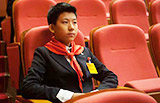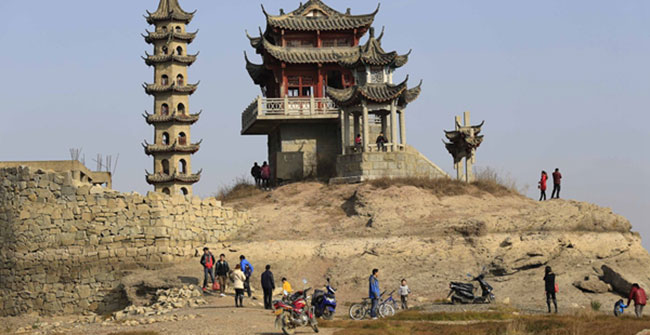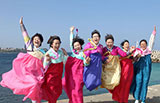Community efforts build rounded society
By Zhuan Ti (China Daily) Updated: 2015-03-06 17:33Editor’s note: In 2014, Nantong, Jiangsu province, made noticeable social and economic progress. The Nantong Report will introduce those achievements and update the changes regularly. In this edition, we look at the city’s efforts in culture, education and sport.
• Nantong initiated a series of projects to enhance the protection and development of cultural and historical heritage.
Linggong School, the first modern school of performing arts in China, was renovated and became a new base for promoting performing arts.
The Xisi Temple, which reopened on May 1 after restoration, became a new attraction in the Haohe River Scenic Area and a center for Buddhist culture in Nantong.
As well as the Southern Park that opened to the public after being upgraded, the Nantong 1985 Cultural Creative Industrial Park became a national-level demonstration base for culture-related industries. The park aims to boost transformation and development of the creative industry by tapping into Nantong’s rich heritage.
At the same time, Nantong’s Tangzha town, an important industrial base in modern China, won support from Jiangsu province for its application to be listed as a UNESCO world cultural heritage site. The application was submitted to the State Administration of Cultural Heritage.
• Five colleges in Nantong were upgraded or renamed by the Ministry of Education.
These included Zilang Vocational and Technical College, which offers bachelor’s degrees and was restructured and renamed Nantong College of Science and Technology.
The college upgrades injected new development impetus into Nantong’s education system and enhanced the educational services, which will help the city’s sustainable growth.
• Seven counties or districts in Nantong — Haimen, Rugao, Hai’an, Qidong, Rudong, Tongzhou and Chongchuan — were designated by the province as a model for mutual support between civilians and the army. The number of areas involved was the most seen before.
Nantong was honored as a model city at a national awards ceremony for its outstanding work in the placement of military retirees.
• In the China City Philanthropy Index 2014, released by the China Charity Information Center, Nantong was given seven stars— the highest level according to the index — for its charity work.
There were more than 150 charity organizations in the city and 888 charity shops were set up last year. About 230,000 local people received charitable aid.
In addition to the growing number of organizations and operations, more volunteers got involved in charity work.
Nantong native Wu Jinquan, a knife sharpener known for donating his earnings from his business to needy people, received an award at the First China Philanthropy Annual Awards Ceremony in Beijing in November.
Five residents from Nantong, including Zhao Shunqiu, were listed as candidates for the Chinese Good Fellows award.
• Chen Ruolin, a star diver from Nantong, lit the flame for the Youth Olympic Games torch at the event’s opening ceremony in Nanjing in August.
Three athletes from Nantong participated in the Games and Shi Yuqi won a gold medal in the badminton men’s singles.
Eleven athletes from Nantong participated in the 17th Asian Games, which started in Incheon, South Korea in September. The group took home four gold medals, two silver medals and three bronze medals.
• The city used several methods to encourage its 43 primary and 22 junior middle schools to run jointly.
The city’s 20 kindergartens were recognized as high-quality ones at provincial level.
About 590,000 square meters worth of school buildings were built, rebuilt or renovated last year.
Contact the writer at zhuanti@chinadaily.com.cn
- Nation in bid to ward off the Zika virus
- Li drops in for a chat at historic mosque
- Prison time reduced after 11 show they regret crimes
- PLA vows support, contributions to military reform
- Hainan looks to boost visitor numbers
- Excessive emissions a big problem in 59 cities
- Tough rules will cut marine pollution
- PLA revamps command system
- Teen calls for educational reform at political meeting
- Huge investment fraud ring smashed






